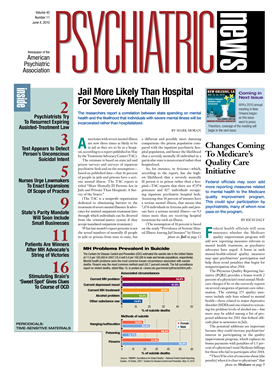Online social networking threatens to open new dimensions of potentially troubling pharmaceutical marketing.
So says the advocacy organization Center for Digital Democracy in a letter addressed to the Food and Drug Administration (FDA) last month, raising a host of concerns about the way pharmaceutical companies could use social media—such as Facebook, MySpace, or Twitter, among others—to market their products.
“Current FDA guidance on the presentation of risk information should not be compromised to the detriment of the public health, in favor of accommodating recent developments in online product promotion,” said Jeff Chester, executive director of the Center for Digital Democracy, in its May 10 letter to the FDA. “If a marketing tool, such as a space-limited micro-site, mobile application, or 'tweet,' is unable to satisfy basic consumer-protective measures such as the fair balance requirement, that tool should be considered inappropriate for the promotion of pharmaceutical products.”
(The “fair balance requirement” is a key component of FDA guidelines for drug promotion, stating that “fair balance must be achieved between information relating to side effects and contraindications and information relating to the effectiveness of the drug.”)
According to its Web site, the Center for Digital Democracy is a Washington, D.C.-based nonprofit organization whose mission is to to promote “an electronic media system that fosters democratic expression and human rights.”
The FDA held hearings on the subject of social media and pharmaceutical marketing in November 2009 (Psychiatric News, December 18, 2009) and in February of this year. But the May 10 letter was addressed to Margaret Hamburg, M.D., commissioner and Joshua Sharfstein, M.D., deputy commissioner of the FDA, to urge the Obama administration to “proceed very carefully as it works to develop rules regarding digital-media marketing of pharmaceutical products.” (Sharfstein is the son of APA past President Steven Sharfstein, M.D.)
Chester drew attention to new forms of consumer manipulation that have been made possible by online social media, such as “behavioral targeting,” which uses covert online data collection designed to identify, track, profile, and target consumers.
And he highlighted the potential for a new form of “direct-to-consumer advertising” using the new digital technology and social media. “Drug or device companies should not be engaged in any promotion of their products via direct e-mail, text messaging to consumers, blast e-mail or e-mail list-serves, chat rooms, or social networking bulletin boards that are operated by third parties,” Chester wrote. “The only legitimate use of such tools to communicate directly with consumers is via a company's own Web site, and only with adherence to full 'fair and balanced' information rules.”
Finally, he pointed to the need for new regulation of disease-specific Web sites that attract individuals with common health concerns and allow them to network with each other.
“Those who turn to social networks, seeking solace or insight from others who may face the same health challenges, may be subject to social media marketing applications that stealthily eavesdrop and analyze conversations by and among health consumers, taking advantage of the user's network of friends to orchestrate peer-to-peer brand promotion,” he said. “The FDA should evaluate the roles that social media marketing technologies are playing in the delivery of health-related product promotion.”
FDA spokesperson Shelly Burgess told Psychiatric News that the FDA does not provide public comment on letters related to ongoing reviews, pending applications, or investigations. She said draft guidance related to Internet and social-media promotion of FDA-regulated medical products would be published in the Federal Register later this year.
The pharmaceutical industry has its own concerns about the free-for-all atmosphere of online social media, especially the possibility for individuals to place adverse information about industry products in networking formats that millions of people potentially can see.
“Among the many values of social media is a focus on open and free-flowing communications from a wide variety of users,” stated the Pharmaceutical Research and Manufacturers of America (PhRMA) in comments submitted to the FDA for the February hearing. “However, this free flow of communication also allows users to post inaccurate and misleading information about products, including medicines, that could actually harm patients.... “If a company becomes aware of such information, a prompt factual response or correction by the pharmaceutical manufacturer may enhance the public health.... Accordingly, FDA should confirm formally that, while it is not possible for manufacturers to monitor or correct all inaccurate information about their products on the Internet, such corrections by manufacturers in response to inaccurate postings will not be considered promotional labeling.”

